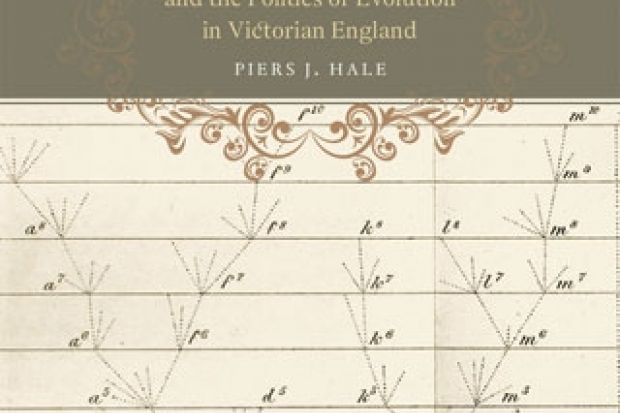Charles Darwin was always unstinting in his praise for the work of Thomas Malthus and its influence on the development of natural selection. He even went so far as to say that “the doctrine of Malthus applied to whole animal and vegetable kingdoms”. However, in the wider context of Darwinian thought, Malthus’ work took on a life of its own, and opened up a deep fissure in the liberal intellectual community of Victorian and Edwardian England. Piers Hale sets out to explore the relationship that developed between Malthus and Darwin in the political landscape of evolution, and argues that there were two camps, both claiming to be Darwinian, that respectively supported and opposed Malthusian influences on natural selection.
Hale contextualises the work of Malthus and its relationship to Darwin by placing it within the realm of liberal political thought after the shock waves of the 1832 Great Reform Act. He suggests that two schools of Malthusian thought subsequently developed: the first firmly pro-Malthus, the other decidedly antagonistic towards his views. Instead, the latter drew inspiration from the work of Jean-Baptiste Lamarck (he of stretchy-necked-giraffe and huge-blacksmith-arm fame). One of the most interesting aspects of Hale’s work is his consideration of just how long the battle between these opposing camps lasted. Mutual hostility reigned from before the publication of On the Origin of Species in 1859 until the end of the First World War, and created a wedge between two groups that both claimed to be Darwinian in outlook.
At the heart of the argument was the matter of how the actual process of evolution worked, but its ramifications were far-reaching and illustrative of a preoccupation in Victorian and Edwardian social and political theory with the issue of how human society should best be organised to reflect the role of evolution. In this dispute, we can see the genesis of ideas of social Darwinism and eugenics that fed into political beliefs that tore Europe apart and unleashed genocide on an industrial scale.
Darwin appeared to be completely uninterested in picking a side in this hostile argument over his work. Malthus always intended his own work to be used to examine, explain and predict human social organisation. Perhaps Darwin did not take this into account when incorporating Malthus into his theories, and did not anticipate that it would encourage the application of evolutionary ideas to wider social and political contexts. Always the biological thinker, Darwin could see the beauty and elegance of Malthus’ work and transpose it seamlessly to the natural world, but perhaps would have had little time for the wider societal context of Malthus’ views of human nature.
Hale’s book is meticulously researched and compellingly argued. Although aimed at a very small group of scholarly readers, its wider message is of considerable importance. Ideas can, and do, take on lives of their own and impact in ways beyond the conception of their originators. One could safely argue that Malthus, a priest schooled in the Church of England’s 39 articles of religion at the University of Cambridge, would at the very least have been troubled by Darwin’s work, just as Darwin disagreed with those who sought to subvert his theory to suit their own views of how the world should look.
Political Descent: Malthus, Mutualism, and the Politics of Evolution in Victorian England
By Piers J. Hale
University of Chicago Press, 464pp, £31.50
ISBN 9780226108490 and 8520
Published 23 June 2014
Register to continue
Why register?
- Registration is free and only takes a moment
- Once registered, you can read 3 articles a month
- Sign up for our newsletter
Subscribe
Or subscribe for unlimited access to:
- Unlimited access to news, views, insights & reviews
- Digital editions
- Digital access to THE’s university and college rankings analysis
Already registered or a current subscriber? Login





